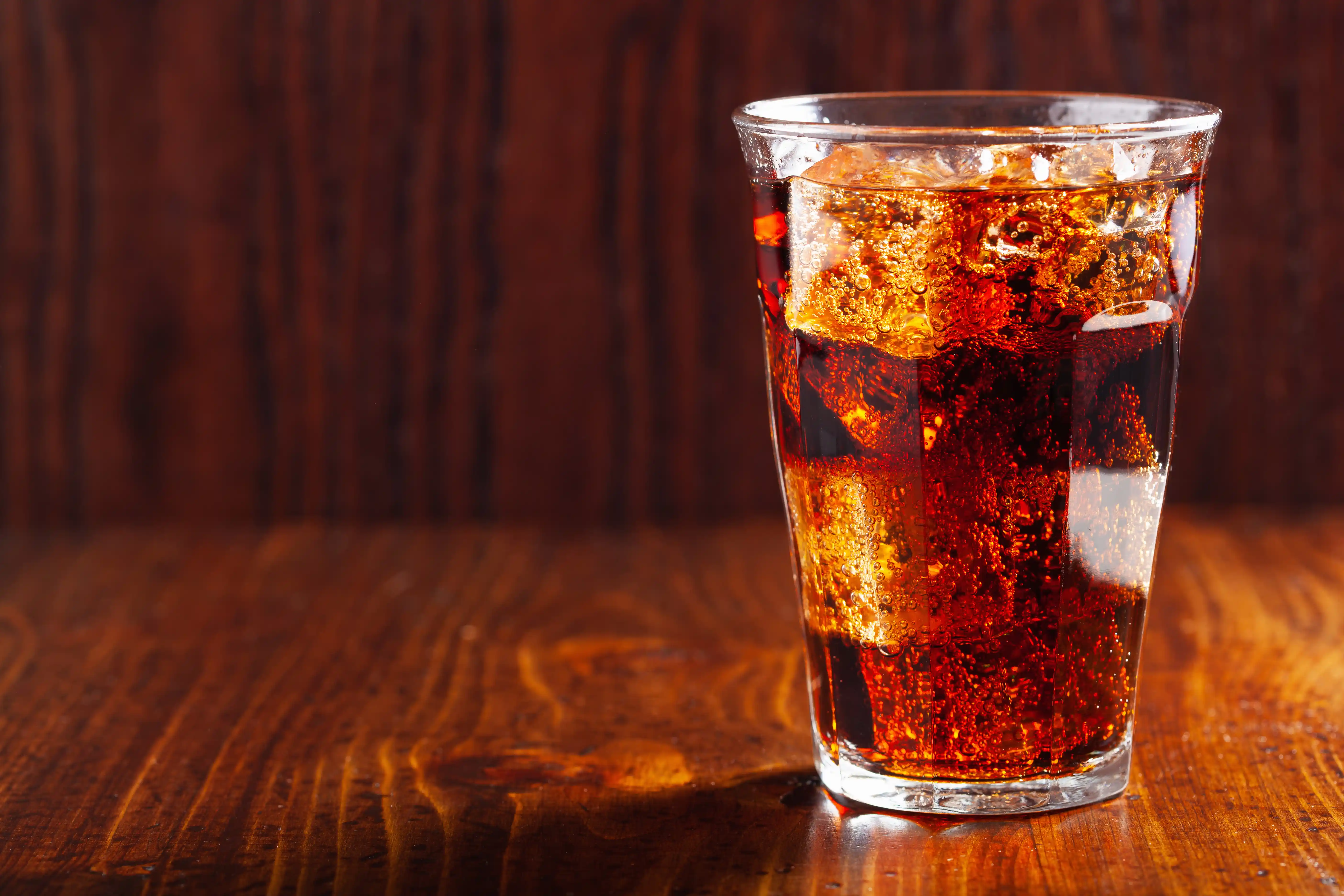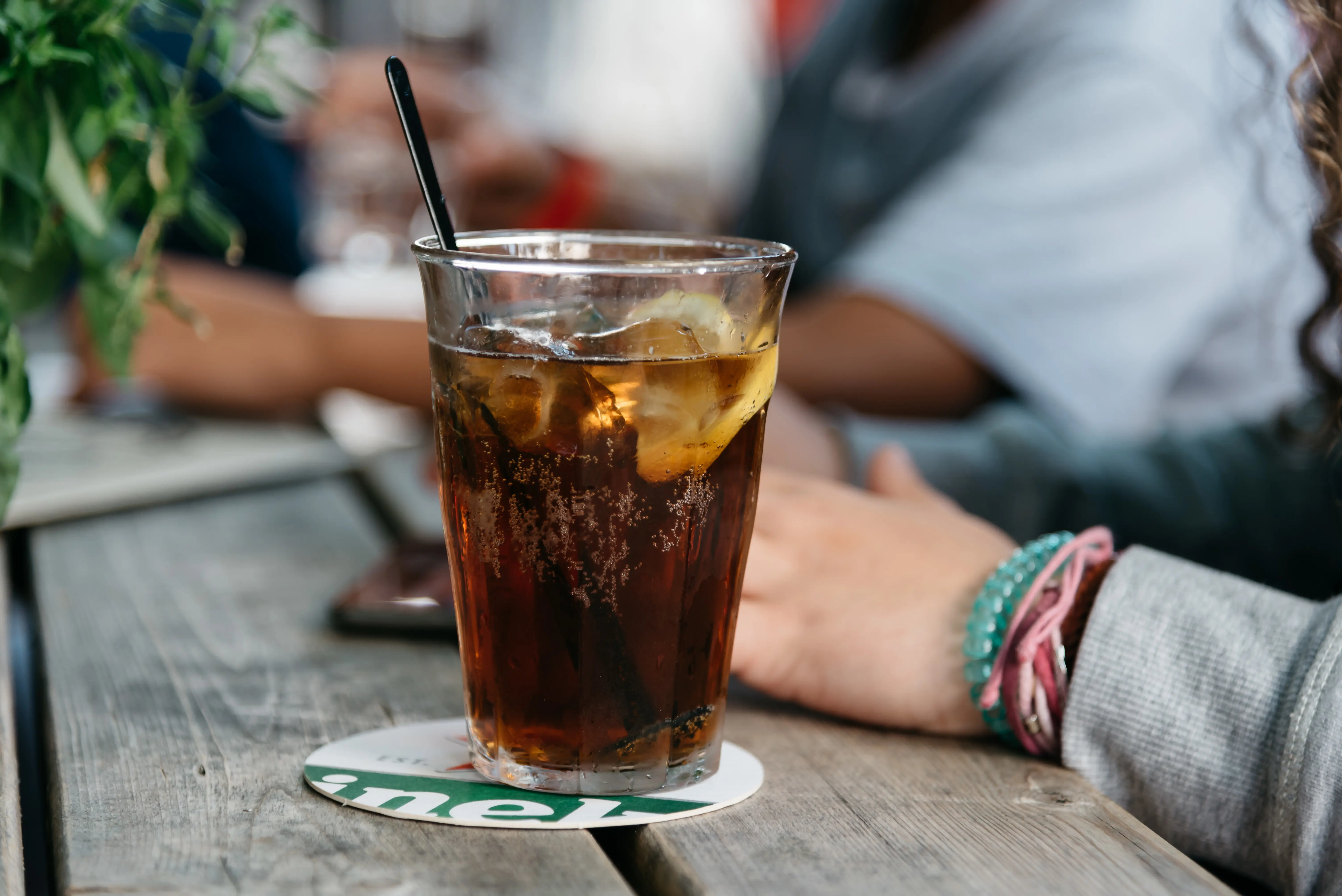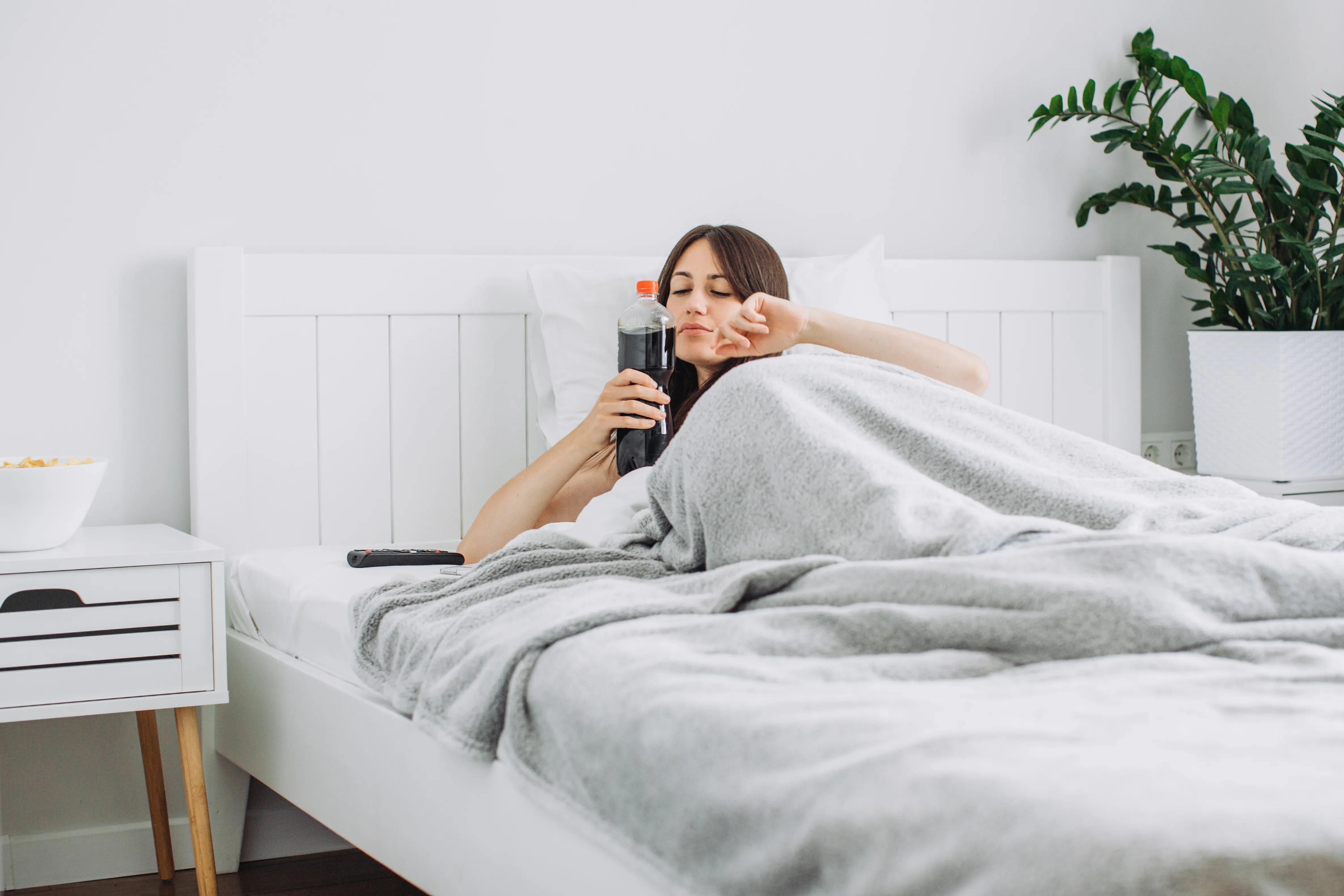Soda may be a go-to beverage for a quick energy boost or a refreshing treat, but its effects often linger far beyond the last sip. While the high sugar content and fizzy sweetness are easy to enjoy, many people overlook how soda can quietly sabotage their sleep.
From its caffeine kick to its impact on blood sugar levels, this seemingly harmless drink can disrupt your body’s ability to rest, recharge, and recover. Understanding the connection between soda, nutrition, and sleep is the first step toward making choices that support better nighttime rest and long-term physical health.
Soda and Sleep: Understanding the Connection
Soda’s refreshing taste and energizing kick can feel like a welcome treat during the day, but the same qualities that make it appealing can also work against your ability to get quality sleep.
The combination of caffeine, sugar, artificial ingredients, and even carbonation can create a chain reaction in the body that affects how quickly you fall asleep, how deeply you rest, and how often you wake during the night.
How Soda Affects Sleep

The impact of soda on sleep is not the result of a single ingredient but rather the way multiple factors interact with your body’s natural circadian rhythms.
Caffeine can stimulate the brain long after your last sip, sugar can send your energy levels on a rollercoaster, and artificial additives may cause subtle disruptions to your digestive and nervous systems. Together, these elements can prevent your body from fully winding down in the evening.
Caffeine Content
Even a modest amount of caffeine can act as a powerful stimulant, especially for people who are sensitive to it or consume it late in the day.
- Stimulates the Nervous System: The caffeine in soda triggers alertness by blocking adenosine, the brain chemical that promotes sleepiness.
- Delays Sleep Onset: Because caffeine remains in your system for hours, drinking soda in the afternoon or evening can push back your body’s natural sleep schedule.
- Interrupts Sleep Cycles: High caffeine intake can reduce time spent in deep and REM sleep, leading to a less restorative night.
Sugar Levels
The sugar in soda doesn’t just affect your waistline—it also plays a role in how your brain and body handle sleep.
- Energy Spikes and Crashes: Soda’s high sugar content can cause quick bursts of energy followed by sharp drops, which may make you feel jittery at bedtime.
- Increases Nighttime Awakenings: Sugar spikes can lead to fluctuations in blood glucose during the night, causing sudden wake-ups.
- Influences Hormone Balance: Elevated sugar intake can interfere with hormones that regulate sleep, such as cortisol and melatonin.
Artificial Additives
Many sodas contain artificial flavors, colors, and preservatives that can irritate the stomach, overstimulate the brain, or trigger mild allergic reactions in sensitive individuals—all of which can interfere with restful sleep.
Acid Reflux and Discomfort
The carbonation in soda can increase stomach pressure and cause acid reflux, especially when consumed before lying down. This discomfort can make it harder to fall asleep or stay asleep through the night.
Tips to Minimize Soda’s Impact on Sleep
If you’re not ready to cut soda out completely, small adjustments in when and how you drink it can still make a noticeable difference in your sleep quality. These strategies can help you enjoy the occasional soda without letting it sabotage your rest.
- Set a Cut-Off Time: Aim to stop drinking soda at least six hours before bedtime to give your body enough time to process caffeine and sugar before you wind down.
- Reduce Portion Sizes: Opt for smaller cans or share a serving to limit both caffeine and sugar intake in a single sitting.
- Switch to Water or Herbal Tea in the Evening: Replace late-day sodas with non-caffeinated options like chamomile tea or infused water to promote relaxation.
- Avoid Drinking Soda with Heavy Dinners: Pairing soda with rich meals can worsen acid reflux and discomfort, making it harder to fall asleep.
- Pair with Protein or Fiber: If you do drink soda, have it with foods that slow sugar absorption to minimize energy spikes and crashes.
Timing of Soda Consumption
The timing of soda intake plays a huge role in how much it affects your sleep. Even if your overall daily amount is moderate, drinking it too close to bedtime or throughout the day can keep your body in a constant state of stimulation.
Afternoon and Evening Intake
Having soda later in the day extends caffeine’s effect into the hours when your body should be preparing for rest.
- Prolonged Stimulation: Caffeine from afternoon sodas can linger in your system well into the night, keeping your brain alert.
- Delays Melatonin Release: Your body’s natural sleep hormone may be suppressed, pushing your bedtime later.
- Worsens Restlessness: The combination of sugar and caffeine late in the day can make it harder to settle into deep, restorative sleep.
Frequent Consumption
Regular soda intake throughout the day keeps your body in a cycle of sugar highs and caffeine stimulation.
- Builds Tolerance: Over time, your body adapts, which may lead you to consume even more to get the same energy boost—further harming sleep.
- Maintains High Sugar Levels: Constant sugar intake prevents your body from returning to a balanced state, leading to energy fluctuations at night.
- Encourages Habitual Late-Night Drinking: The more often you drink soda, the more likely you are to reach for it out of habit—even close to bedtime.
Health Implications of Excessive Soda Intake

While soda’s immediate effects on sleep are noticeable, its long-term impact on overall health can also indirectly reduce sleep quality. Poor health can make restful nights even harder to achieve.
Weakens Immune Function
High sugar intake can suppress the immune system, making you more susceptible to illnesses that disturb sleep, such as colds or sinus infections.
Impacts Cognitive Function
Poor sleep and excess sugar can create a cycle of reduced concentration, slower thinking, and mental fatigue during the day.
Over time, the brain’s ability to process information efficiently may decline, making it harder to focus on tasks or retain new information. This mental sluggishness can affect productivity, decision-making, and even your capacity to handle complex problems.
Increases Risk of Chronic Conditions
Excessive soda consumption is linked to obesity, type 2 diabetes, and cardiovascular issues—all of which can contribute to chronic sleep problems.
These health conditions can create additional physical discomfort, hormonal imbalances, and stress that disrupt the body’s natural sleep-wake cycle. The long-term effect is often a compounding of health and sleep issues, creating a difficult cycle to break.
Heightens Stress and Anxiety
Caffeine and sugar can amplify stress hormones, increasing feelings of anxiety that interfere with your ability to relax before bed.
This heightened state of alertness makes it harder to transition into restful sleep, especially if consumed later in the day. Over time, this can lead to persistent sleep difficulties and heightened sensitivity to everyday stressors.
Reduces Emotional Resilience
Poor-quality sleep combined with blood sugar fluctuations can lower your ability to cope with daily challenges.
Without adequate rest, emotional regulation suffers, making small inconveniences feel overwhelming. This diminished resilience can affect relationships, work performance, and overall life satisfaction.
Affects Mood Stability
Regular soda intake may cause mood swings due to unstable blood sugar and disrupted sleep cycles, making it harder to maintain emotional balance. These fluctuations can manifest as irritability, frustration, or sudden drops in motivation throughout the day.
Long-Term Benefits of Cutting Back on Soda for Sleep
Reducing soda consumption not only improves nightly rest but also boosts overall well-being. Over time, you may find it easier to fall asleep, stay asleep, and wake up feeling more refreshed.
You’ll likely experience steadier energy throughout the day, better mood regulation, and fewer late-night wake-ups.
As your body adjusts, you may also notice improved digestion, stronger immunity, and a greater sense of calm in the evenings—making good sleep the natural result of a healthier lifestyle.
FAQs
Can soda affect my sleep?
Yes, soda can significantly impact sleep due to its caffeine and sugar content. Caffeine is a stimulant that can block the effects of adenosine, a chemical in your brain that promotes sleepiness, making it harder to fall asleep.
How long before bed should I stop drinking soda?
It’s best to avoid soda at least 6 hours before bedtime to allow your body enough time to process the caffeine and reduce its stimulating effects. For some people, especially those sensitive to caffeine, it may be helpful to cut off soda consumption even earlier in the day.
Are diet sodas better for sleep?
While diet sodas contain fewer calories and less sugar, they often still contain caffeine and artificial sweeteners. Caffeine will still have the same stimulating effect, and some artificial sweeteners—such as aspartame—have been linked to potential sleep disturbances in sensitive individuals. Therefore, switching to diet soda isn’t necessarily a foolproof way to improve sleep quality.
What are some good alternatives to soda for a better night’s sleep?
If you’re looking for bedtime-friendly drinks, consider herbal teas like chamomile or peppermint, which can promote relaxation without caffeine. Warm milk contains tryptophan, an amino acid that supports melatonin production, helping you feel sleepy.
Does reducing soda intake improve sleep quality?
Yes, lowering your soda intake can noticeably improve your ability to fall asleep and stay asleep through the night. By reducing caffeine and sugar spikes, your body can maintain a more stable energy rhythm, which supports natural sleep cycles. Many people also report waking up feeling more refreshed after cutting back on soda.
Can carbonation affect my sleep?
While carbonation itself doesn’t directly interfere with your sleep cycles, it can cause bloating, belching, or mild discomfort—especially if consumed close to bedtime. This discomfort may make it harder to find a comfortable sleeping position or cause you to wake up during the night.
Is there a safe amount of soda to drink without affecting sleep?
Moderation is key. For most people, enjoying soda in the morning or early afternoon in small amounts—around one serving—won’t cause significant sleep disruption. Avoiding it in the evening and keeping your total daily caffeine intake within safe limits can help reduce its impact on rest.
How can I wean off soda without withdrawal symptoms?
Gradual reduction is the most comfortable approach. Start by replacing one soda a day with a caffeine-free alternative like sparkling water or herbal tea. Over time, continue reducing your intake until you no longer crave it. This method helps you avoid caffeine withdrawal symptoms such as headaches, irritability, and fatigue.
Conclusion
Your evening soda might seem like a small indulgence, but over time it can shape the quality of your sleep and, by extension, your overall well-being. By being mindful of when and how much you consume, you can minimize the drink’s disruptive effects and enjoy more restful nights.
Jessica H.
Jessica is a reviewer, writer, and sleep enthusiast at Sleepiverse. Jessica graduated with her master's degree in Nursing research and education. She is a registered nurse and currently works in the Intensive Care Unit. Since becoming a nurse, Jessica has worked the night shift, which means a disrupted sleep schedule. Knowing she needed to function at her best while caring for patients at night, she spent a lot of time researching how to sleep well with a difficult schedule.


